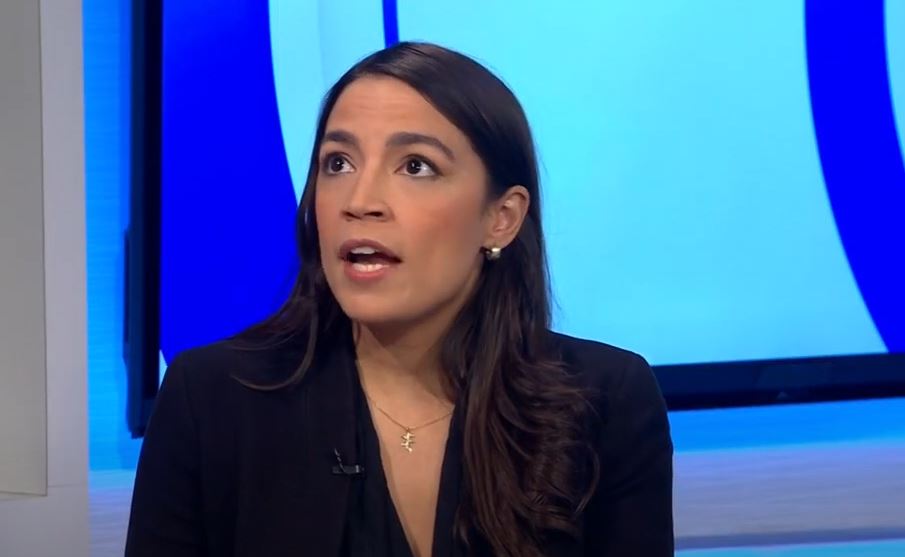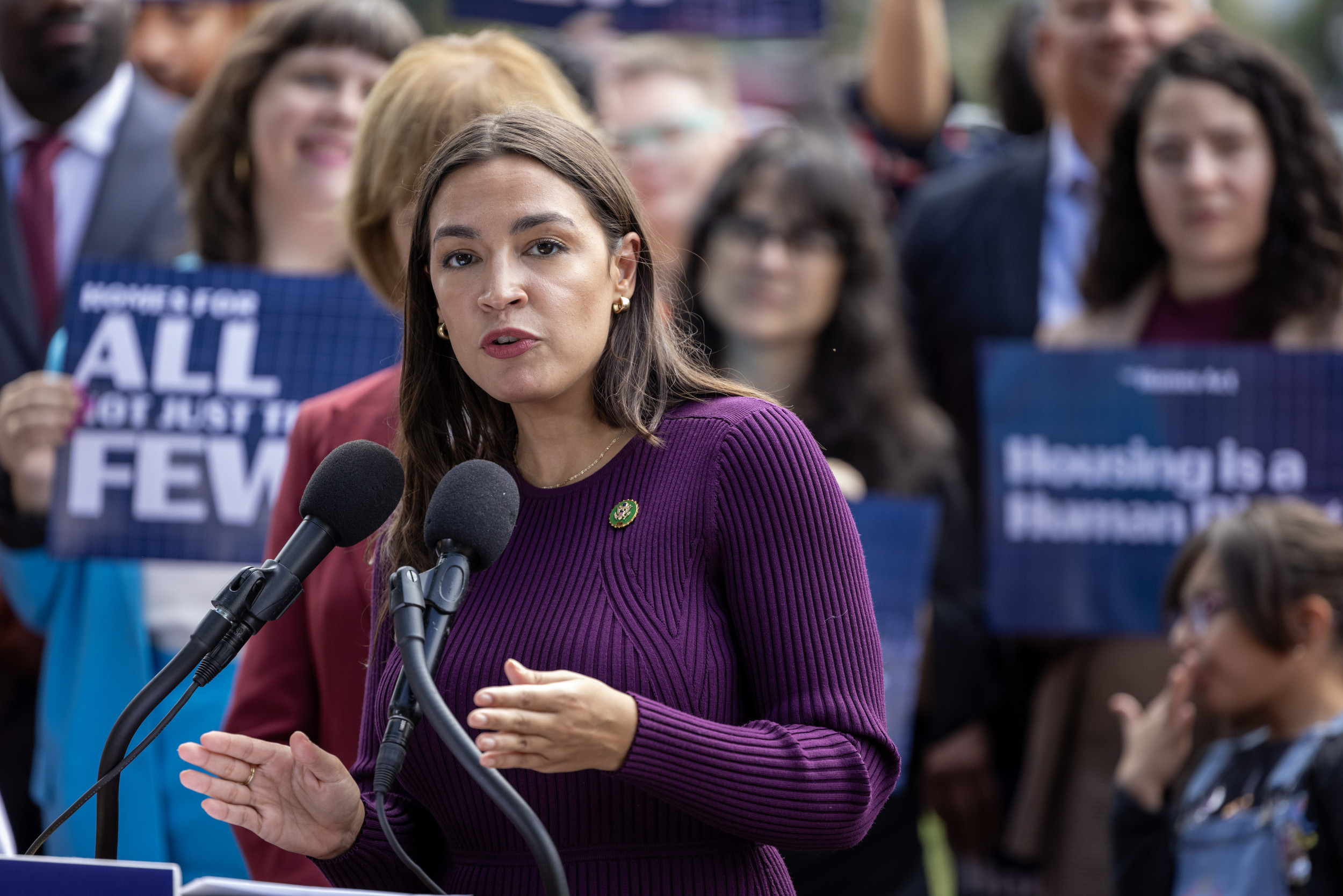AOC's Finances: Fact Vs. Fiction & Net Worth Insights
Is it possible to reconcile the public image of a young, progressive congresswoman with the complex realities of wealth and financial disclosure? The narrative surrounding Alexandria Ocasio-Cortez, or AOC, is often shaped by contrasting claims, making it crucial to dissect the facts from the fiction in the arena of her financial standing.
The landscape of contemporary politics is often a whirlwind of contradictory narratives. Claims and counterclaims about politicians' finances are nothing new, but the speed and scale at which misinformation spreads in the digital age has amplified the challenge of separating fact from fiction. One figure who consistently finds themselves in the crosshairs of such scrutiny is Alexandria Ocasio-Cortez, the New York congresswoman who has become a prominent voice in progressive politics. Her story, often framed as a "Cinderella journey" from underdog to powerful politician, is now inextricably linked to questions of wealth, income, and net worth. The goal here is to untangle the complex information, to assess her financial position and the accuracy of statements related to it.
| Category | Details |
|---|---|
| Full Name | Alexandria Ocasio-Cortez |
| Date of Birth | October 13, 1989 |
| Place of Birth | Bronx, New York City, New York, U.S. |
| Political Party | Democratic |
| Current Position | U.S. Representative for New York's 14th congressional district |
| Education | Boston University (B.A. in Economics and International Relations) |
| Career Highlights |
|
| Income Sources |
|
| Reported Net Worth (Early 2025) | Less than $500,000 |
| Financial Ventures | Stated not to engage in stock trading or other financial ventures |
| Primary Financial Institution | Wells Fargo (Main account with $250,000 reported) |
| Reference Link | Official Congressional Website |
The financial landscape surrounding Alexandria Ocasio-Cortez is often shrouded in a fog of claims and counterclaims. These claims, amplified by the echo chambers of social media, have ranged from assertions of substantial wealth to those emphasizing a more modest financial standing. The reality, as evidenced by her official financial disclosures and public statements, paints a nuanced picture that often diverges from the more sensationalized narratives.
One of the most consistent claims circulating on social media alleges a net worth of $29 million. However, this figure has not been substantiated by credible sources or financial disclosures. In early 2025, Ocasio-Cortez stated that her net worth was less than $500,000, emphasizing that her congressional salary was her primary source of income and that she did not engage in stock trading or other financial ventures. This public declaration stands in stark contrast to the aforementioned $29 million figure, highlighting the disparity between unsubstantiated claims and official reports.
Her income is primarily derived from two key sources: her congressional salary and book deals. As a U.S. Representative, Ocasio-Cortez earns approximately $174,000 annually. In addition to her congressional salary, she also benefits from book deals, a common source of income for political figures, particularly those who have risen to prominence quickly. The revenues from these books, combined with her congressional salary, form the bulk of her financial earnings.
This is, however, where some points of contention seem to arise. There have been, and continue to be, claims that AOC generates a significant amount of income from investments and other business ventures, to the tune of $1.6 million per year. However, those particular claims have not been proven or verified in any official financial documents made public. It is important to note that, even if true, this amount of money does not necessarily define the congresswoman's net worth, as those earnings do not account for expenses, and could be subject to taxation.
In the complex world of personal finance, and particularly when it comes to public figures, the difference between assets, liabilities, and overall net worth is a crucial point of distinction. Net worth is the value of all assets minus the value of all liabilities. When assessing someones financial position, it is not enough to simply look at a persons salary or even their annual income. Other factors such as debt, outstanding loans, and long-term investments all have a significant effect on a persons total financial worth.
While the precise details of her financial holdings remain relatively opaque, her public statements and official disclosures offer a more grounded view. Her main bank account, held at Wells Fargo, reportedly contains around $250,000. This information provides some insight into her liquid assets, although it does not capture the full scope of her potential net worth.
The dynamics of wealth and political influence have long been intertwined, and in the case of AOC, this interplay is made even more complicated by the speed at which information, both accurate and inaccurate, proliferates. The congresswoman is a member of the "Squad," a group of progressive House members known for their outspoken views and media savvy. The spotlight on these members means that any assertion about their financial standing, from the seemingly innocuous to the outright outlandish, is likely to be amplified, thus fueling the need for a careful analysis.
The financial landscape of U.S. Congress members is, in general, a very interesting space. As of 2015, the collective wealth of all members of Congress was estimated to be over $1.1 million, with a cumulative wealth of at least $2.43 billion. This statistic highlights the significant financial resources present within the legislative branch. While these figures provide a macro-level view, they do not necessarily apply directly to individuals like AOC. However, they do help to frame the general financial background of the environment in which she operates.
The claims and rumors of vast wealth, particularly those that are unsubstantiated, can have a number of repercussions. They can undermine public trust in the political process and the integrity of the individuals involved. This is especially true when these claims are presented without supporting evidence or context. They can also distract from the more pressing matters of policy and governance. Given the constant stream of information that permeates the modern world, it is vital to rely on credible sources and established evidence.
Contrast this against the backdrop of the financial world and the case of a player such as Giancarlo Stanton, a prominent baseball player. He is projected to earn $32 million for the 2025 season. This substantial difference serves as a reference point for understanding the range of incomes in the public sphere, and it highlights the wide variation in the financial landscapes of different professions and individuals.
The narrative of Alexandria Ocasio-Cortez, from her "Cinderella journey" in politics, to her emergence as a prominent figure, offers a valuable case study in the intersection of politics, finance, and public perception. To clarify the facts and determine the accuracy of the claims, we must assess her financial disclosures, statements, and sources of income. Although the facts are complex, a clear assessment is important.
In summary, while there are conflicting claims regarding her wealth, her primary income sources are her congressional salary and book deals. Despite unsubstantiated claims of a larger net worth, official disclosures and public statements indicate a more modest financial standing. The contrast between these divergent claims highlights the ongoing need for scrutiny and verifiable evidence when assessing the financial positions of public figures.


